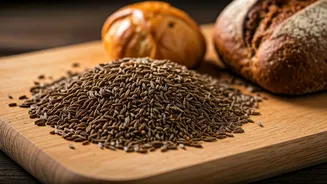Carb vs. Fat
The low-carb and low-fat diets represent opposite ends of the dietary spectrum. A low-carb diet typically restricts carbohydrate intake, emphasizing protein
and healthy fats. This approach aims to reduce insulin levels, which can promote fat burning. Conversely, a low-fat diet restricts fat intake, often emphasizing carbohydrates and lean protein sources. The focus is on reducing overall calorie intake from fat, with the belief that this will lead to weight loss. Each approach has its proponents and detractors, making the choice between the two a complex one. Understanding the core principles of each diet is the first step towards determining which best suits an individual’s goals and preferences. The choice often comes down to personal tolerance, lifestyle, and individual health considerations.
Low-Carb: Key Aspects
Low-carb diets, such as the ketogenic diet and the Atkins diet, significantly limit carbohydrates like bread, pasta, and sugary treats. The primary goal is to shift the body's primary fuel source from glucose (derived from carbohydrates) to ketones (produced from fat). This metabolic state, known as ketosis, encourages the body to burn stored fat for energy. Low-carb diets often include a high intake of protein and healthy fats, such as those found in avocados, nuts, and olive oil. Proponents of this diet suggest it can lead to rapid initial weight loss, improved blood sugar control, and reduced hunger. However, it can also lead to side effects like the "keto flu" (headaches, fatigue, and nausea), and may require careful planning to ensure adequate nutrient intake. Furthermore, the sustainability of a low-carb diet varies from person to person, often requiring considerable lifestyle adjustments.
Low-Fat: Key Aspects
Low-fat diets emphasize a reduction in dietary fat intake, often recommending that fat constitutes a small percentage of overall calorie consumption. This approach commonly encourages a diet high in carbohydrates, particularly whole grains, fruits, and vegetables, and lean protein sources. The core idea behind a low-fat diet is that reducing fat intake lowers overall calorie consumption, contributing to weight loss. Advocates argue that this can reduce the risk of heart disease and improve overall health. However, a significant reduction in fat intake can sometimes lead to decreased satiety, making it more difficult to manage hunger. Additionally, unless carefully planned, low-fat diets might not provide sufficient amounts of essential fatty acids that are vital for brain function and other bodily processes. Therefore, the success of a low-fat diet often hinges on the selection of nutrient-dense foods and careful calorie monitoring.
Weight Loss Mechanism
Both low-carb and low-fat diets can contribute to weight loss through different mechanisms. Low-carb diets promote weight loss primarily by restricting carbohydrates, which lowers insulin levels. This shift encourages the body to tap into stored fat reserves for energy. The initial weight loss on a low-carb diet can be pronounced due to the loss of water weight and reduced glycogen stores. Low-fat diets, on the other hand, mainly focus on reducing overall calorie intake by limiting dietary fat. Since fat contains more calories per gram than carbohydrates or proteins, cutting fat can reduce total calorie consumption. A sustained calorie deficit, regardless of the macronutrient composition of the diet, generally leads to weight loss. Both approaches, however, require a careful balance and consideration of individual metabolic responses and lifestyle preferences.
Metabolic Effects
Low-carb and low-fat diets impact metabolism differently. Low-carb diets can induce ketosis, a metabolic state in which the body uses ketones from fat as its primary energy source. This can lead to increased fat burning, and a potentially faster rate of initial weight loss. Low-fat diets, by focusing on reduced fat intake, may improve insulin sensitivity in some individuals and can lead to a reduction in cholesterol levels. The specific metabolic effects also depend on the individual's genetics, activity level, and overall health. Furthermore, both diets can affect hormone levels associated with hunger and satiety, influencing appetite and overall calorie intake. Therefore, selecting the ideal dietary approach demands consideration of these varied metabolic influences and how they align with a person's individual needs and health goals.
Comparing Effectiveness
Numerous studies have compared the effectiveness of low-carb and low-fat diets. Many studies suggest that both diets can be effective for weight loss. However, the outcomes often vary depending on the specific study design, duration, and participant characteristics. Some research indicates that low-carb diets may lead to slightly greater weight loss in the short term, but the difference often diminishes over time. Other studies have shown that adherence is a key determinant of success, meaning the best diet is often the one a person can realistically stick to. Ultimately, the effectiveness of either diet depends on individual adherence, metabolic responses, and health factors. Weight loss is not solely determined by the type of diet but also by overall calorie intake, activity levels, and other lifestyle factors.
Sustainability Considerations
Sustainability is a crucial factor when choosing between a low-carb and a low-fat diet. Both approaches can present unique challenges to long-term adherence. Low-carb diets may be restrictive and difficult to maintain due to limited food choices. The initial enthusiasm often wanes, leading to less consistent adherence over time. Conversely, low-fat diets might feel less satisfying and require careful planning to ensure adequate intake of essential nutrients. Moreover, the social aspect of eating can make adhering to either diet challenging. Eating out or attending social gatherings may require careful planning and self-control. Therefore, choosing a sustainable diet involves considering personal preferences, lifestyle, and the ability to find a diet that can be incorporated comfortably into daily routines, fostering long-term adherence and successful weight management.
Health Implications
Both low-carb and low-fat diets can have implications for overall health. Low-carb diets, especially those high in saturated fats, may potentially elevate cholesterol levels in some individuals. However, they may also improve blood sugar control and reduce triglyceride levels. Low-fat diets, on the other hand, are often associated with improved cardiovascular health, particularly when focused on unsaturated fats. Nonetheless, they can sometimes lead to deficiencies in essential fatty acids. The health implications of these diets also depend on food choices within the dietary framework. Choosing whole, unprocessed foods is crucial for any diet. It is essential to consult with healthcare professionals to evaluate specific health risks and benefits based on individual health conditions and needs before implementing either dietary approach.
Making the Choice
The decision between a low-carb and a low-fat diet should be personalized, considering several factors. Assess your lifestyle, preferences, and any underlying health conditions. Think about which diet aligns better with your eating habits and what you find sustainable. Consulting with a healthcare provider or a registered dietitian is important for personalized advice. They can provide recommendations based on individual health profiles, dietary needs, and weight loss goals. Also, consider the potential for side effects and ensure adequate nutrient intake. Remember that the best diet is the one that you can adhere to consistently. Prioritize a balanced approach, incorporating whole foods, and a mindful approach to eating. It's often helpful to experiment and track progress to determine which diet works best for your body.
Beyond Dieting Alone
While choosing between low-carb and low-fat diets is crucial, it's essential to recognize that diet alone is not the sole determinant of weight loss and overall health. Exercise plays a vital role in burning calories, improving metabolism, and maintaining lean muscle mass. Regular physical activity should complement any dietary approach. Managing stress and ensuring adequate sleep are also essential. Chronic stress and poor sleep can negatively affect hormones related to appetite and metabolism, hindering weight loss efforts. Furthermore, addressing emotional eating and developing a positive relationship with food is essential for long-term success. Creating a holistic lifestyle plan that incorporates a balanced diet, regular exercise, stress management, and sufficient sleep yields the best results. Thus, adopting a well-rounded approach ensures sustainable weight management and overall health.



















